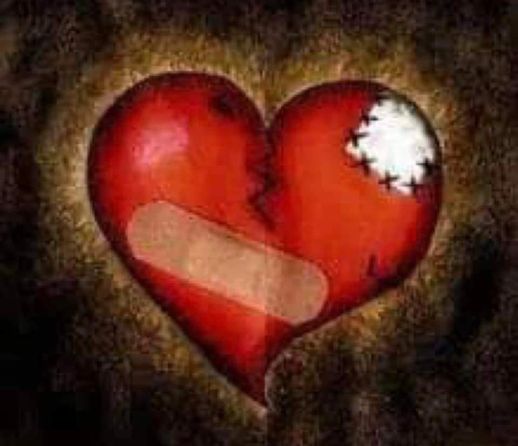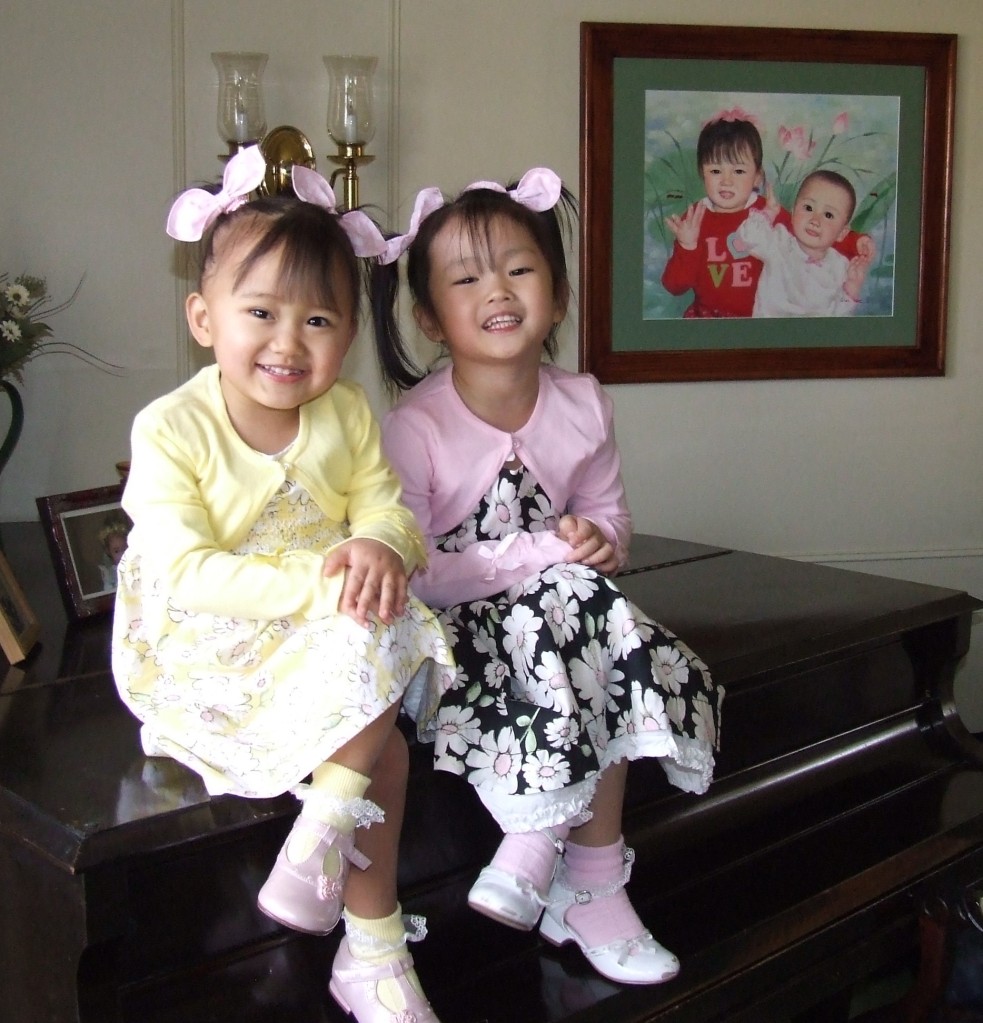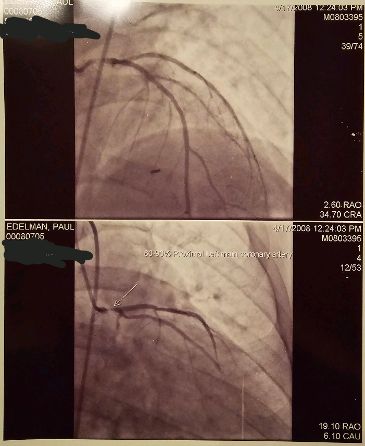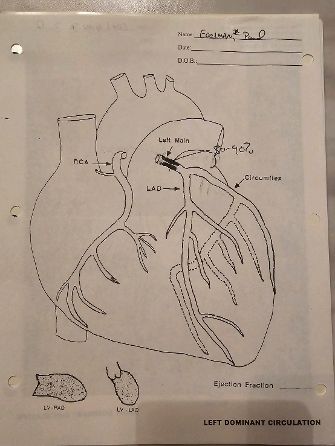Heartversary #16 – Part 2

As I promised Dr. S., I arrived at the cath lab on April 17th, 2008, before the sun even came up. My daughters were still asleep when I left the house, but I made sure to explain to them the night before in details appropriate for a three and five year old to understand, “daddy was just going to be away overnight, and would see them the next day. Though the procedure was expected to be routine, just the mere thought of doing anything with the heart, let alone going up through the leg to fix it, was quite overwhelming. I hugged both of my daughters as long as I could without losing control of my emotions, with the fear of “what if” something went wrong.

The cath lab was nothing remarkable, a typical medical environment, meant for outpatient or simple overnight stays. As I was taken back to the holding area to slip into hospital garb, my nurse, Heather, began asking me pertinent questions about my health, oddly things I had not thought about or discussed in a long time, things related to my Hodgkin’s Lymphoma nearly eighteen years earlier, like not having a spleen or my chemo and radiation therapies. I have no memory of anything else, until I began to come to in a different room. Even under the fog of anesthesia, I could tell I was no longer in the cath lab.
At the foot of my bed, was a family member, a friend who had stopped by to check up on me, and Dr. S., my cardiologist. As my vision came into better focus, and my ears became unmuffled, the first words I heard were, “a major blockage of the main artery, the left coronary artery is blocked 90%.” Just then, my friend, who happened to be a paramedic, spouted out, “oh my God, a widow maker.” To which my cardiologist responded, “yes, but we don’t like to refer to it as that. We have Mr. Edelman set up for an emergency triple bypass at 6:30 in the morning tomorrow.” All that I managed to get out of that was the word “bypass” to which I joined in the conversation, “bypass? Bypass. Bye Bye. Bypass.” I was clearly still “flying.”

(this is what I refer to as the actual photo of my “death”, showing where the actual blockage was located and just how bad it was)

(this was the diagram my cardiologist used to explain how bad my situation was)
My cardiologist went on to explain that as soon as I was more alert, I needed to undergo preparations for the surgery the next morning. They would need to do an ultrasound of my legs to determine an artery to use for the bypasses, among other testing. I was obviously still not understanding what was about to take place.
Approximately two hours later, around dinner time, I only know this because I was approached with a light offering of food, I was encouraged to eat as I would be fasting for the surgery as of 8:00pm. But with the fog in my head now clear, and realizing what I was now up against, eating was the last thing on my mind. I did not want to die which was now clear, was a possibility from the situation itself, or quite possibly from the open heart surgery.
But there was something bigger on my mind, my daughters. They were only five and three years old at the time. We had really just begun our lives together. And as much as I did not want to lose them, I did not want them to have the pain of losing their father. I had never been apart from my daughters since they were adopted, and this night, would be the first of several, that I would be away from them.
I was getting upset, mostly for my daughters. I wanted to hug them, see them, tell them I was going to be okay. But I could not. They were more than an hour away, and I did not own an I-phone or I-pad that I could even see them. I could not give them one more hug that I so desperately wanted to give them. The best I could do, was talk to them on the phone.
Following my “dinner”, everything started moving quickly. I was lifted into a wheelchair and taken to various rooms for bloodwork, ultrasounds, x-rays, and CT scans. It was getting late, and I began to get upset, not because of the looming surgery, I wanted, no, I needed to at least speak to my daughters before they went to bed. I needed to assure them that I would be okay.
“How was school today?”, I started off. “I miss you. I’m sorry that I could not see you after school but I have something very important to tell you. Daddy’s heart is broken and is getting fixed. I’m going to be in the hospital for a few days, which is kind of like a hotel but with a lot more helpers in it, until I get better, and I will. The doctor will make everything better. And then you can come in and see me. And then I get to come home.” I needed to keep it on an age-appropriate level, but they also needed to know what was happening. They took it in stride. I had always been there for them. “Ok Daddy,” they both said.
“I love you Maddie. I love you Emmy. I love you both so much. I will see you both really really soon.”
It was now around 10:00pm, and there were more preparations for the early morning surgery. Everything was happening so quickly. Oddly, I was not scared. The biggest threat to my life, death, was imminent, as well as the possibility of not surviving the surgery. With the way everything was happening, I had no time to dwell on what was going on or about to happen. In a way, that was a good thing. I have seen so many others have to wait weeks or even months for their surgeries, torture, waiting for the time to come. My life would never be the same again, in less than eight hours.






